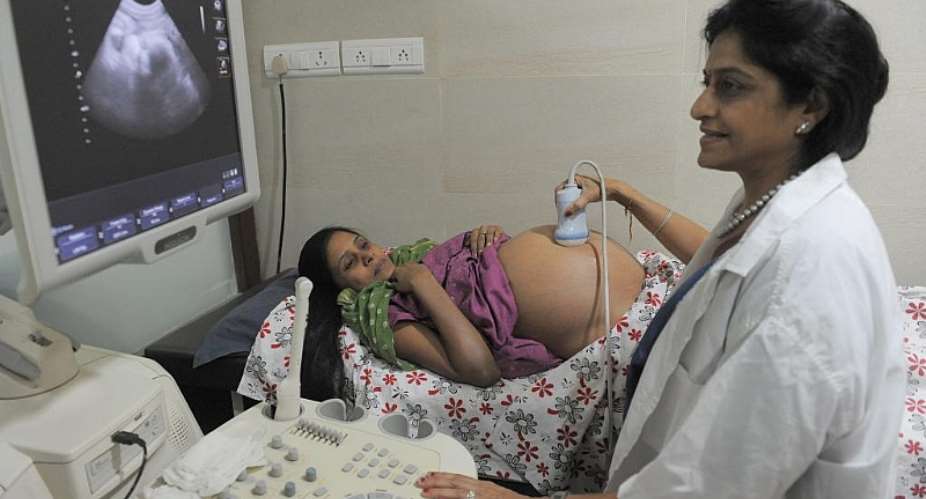The French Court of Final Appeal has officially acknowledged the sole parenthood of a couple who raised twins borne by a surrogate mother in the United States, ending 19 years of judicial battles for Dominique and Sylvie Mennesson.
The decision came after an intervention by the European Court of Human Rights, and a day after French MPs vote to recognise filiation for surrogacy children born abroad and a day after French MPs voted to recognise parenthood of children born through surrogacy abroad.
"Victory and relief...our children are no longer ghosts," said Dominque Mennesson, father of the twins in a reaction to the verdict. "They are now our children legally."
In 2000, Mennesson and his wife Sylvie, who is infertile, had a succesful surrogacy (GPA, or "gestation pour autrui" in French) treatment in the United States. Mennesson's sperm was implanted in the uterus of an anonymous woman, who bore twins, named Valentina and Fiorella by their parents.
At the time, judges in California, where the procedure took place, ruled that Dominique Mennesson was the “genetic father” and his wife the “legal mother,” and issued birth certificates and US passports.
Punishable
But in France, recourse to surrogacy is illegal to prevent the human body from becoming a "commercial instrument", with the risk that the child may become an object of a contract.
French law stipulates that surrogacy is punishable by one year prison and a 15,000-euro fine. The French Consulate in Los Angeles, suspecting surrogacy arrangements, therefore refused to enter the certificates of the Mennessons in the French civil register.
The French authorities ruled that “the acts had been committed on US territory, where they were not classified as an offence, and therefore did not constitute a punishable offence in France”.
The couple then entered into a harrowing legal battle for recognition that was to last 19 years, and even went as far as appealing to the European Court of Human Rights.
In 2014, the ECHR stated: “Totally prohibiting the establishment of a relationship between a father and his biological children born following surrogacy arrangements abroad is in breach of the Convention of the Rights of the Child," and fined the French state 25,000 euros.
Rights of the Child
On 10 April 2019, the ECHR reiterated the obligation to legally recognise the tie between the “mother of intent” and the child born out of surrogacy, even if there is no genetic link.
On Friday 4 October, the French Court of Final Appeal ruled that the birth certificates from 2000, mentioning both Dominique and Sylvie as parents, are valid and that all court decisions blocking Sylvie from being legally declared the twins' legal mother be annulled.
“We are very happy that our daughters now have their rights and their family ties fully recognised,” read a statement by C.L.A.R.A., an association created by created by the Mennessons to fight for the rights of children born out of surrogacy.
“This judicial process that weighed so much on our family is finally over – five years after the decision of the ECHR which ordered an end to this violation of their rights, and almost 19 years after their birth and 15 court rulings.”
On Thursday, French MPs voted against the government and in favor of an amendment which would recognise the filiation of children born through surrogacy abroad.
The government has called for a second consultation.





 We’ll no longer tolerate your empty, unwarranted attacks – TUC blasts Prof Adei
We’ll no longer tolerate your empty, unwarranted attacks – TUC blasts Prof Adei
 Bawumia donates GHc200,000 to support Madina fire victims
Bawumia donates GHc200,000 to support Madina fire victims
 IMF to disburse US$360million third tranche to Ghana without creditors MoU
IMF to disburse US$360million third tranche to Ghana without creditors MoU
 Truck owner share insights into train collision incident
Truck owner share insights into train collision incident
 Paramount chief of Bassare Traditional Area passes on
Paramount chief of Bassare Traditional Area passes on
 Two teachers in court over alleged illegal possession of BECE papers
Two teachers in court over alleged illegal possession of BECE papers
 Sunyani: Victim allegedly shot by traditional warriors appeals for justice
Sunyani: Victim allegedly shot by traditional warriors appeals for justice
 Mahama vows to scrap teacher licensure exams, review Free SHS policy
Mahama vows to scrap teacher licensure exams, review Free SHS policy
 Government will replace burnt Madina shops with a new three-story, 120-store fac...
Government will replace burnt Madina shops with a new three-story, 120-store fac...
